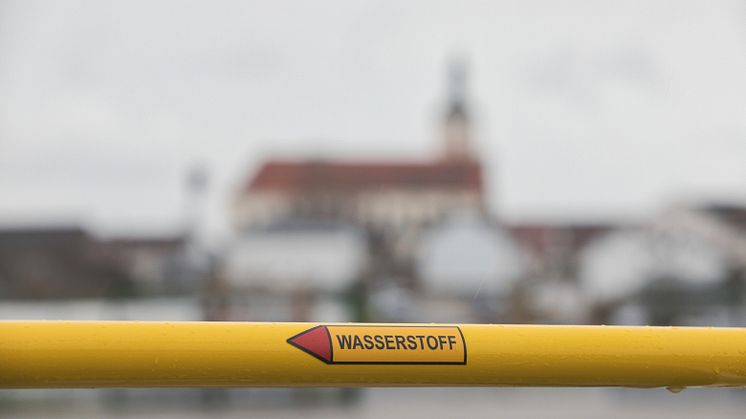
News -
Joint Hydrogen Infrastructure Planned for Bavaria
Together with southern Bavarian distribution system operators, bayernets is presenting a synchronized concept for the Bavarian hydrogen infrastructure. In October 2024, the Federal Network Agency approved the transmission system operators' application for an all-German hydrogen core grid. Although the core grid can reach all federal states and large industrial centers, additional hydrogen transport and distribution systems are required to reach all H2 demand centers and metropolitan areas in Bavaria. H2 network planning that builds on the core grid with the regional/city distribution grids is another important step towards creating planning security for the market.
The Kernnetzplus reflects the hydrogen planning at transport and distribution level, which was developed taking into account existing infrastructure and H2 requirements in the region. With this cross-grid operator approach, we are setting the course for a decarbonized economy and energy supply in Bavaria at an early stage. The considerations surrounding the Kernnetzplus also take our international project plans into account by enabling concrete supply options for hydrogen imports to potential H2 consumers at an early stage.
This is a strong signal to hydrogen customers and hydrogen traders to synchronize their own strategies with each other and with the infrastructure operators. The concrete pipeline plans provide customers with additional arguments for making forward-looking decisions for their decarbonization strategies. The overall concept is based on a common vision of the future for infrastructure developers and operators. What is needed now is joint development with the other market roles.
The commitment to the hydrogen targets is increasing. This is also demonstrated by the joint political declaration of intent by Germany, Algeria, Italy, Austria and Tunisia on the development of the Southern Hydrogen Corridor, which was signed in Rome on January 21, 2025. The Southern Corridor is intended to establish a direct pipeline connection between North Africa and Italy, Austria and Germany for gaseous hydrogen. “With the expansion of our core grid planning and the associated interlinked hydrogen grid planning with the Bavarian distribution network operators, we are taking into account the hydrogen requirements within our grid area at an early stage. In addition, through our international projects, such as the SoutH2 Corridor or the Ukraine-EU Hydrogen Corridor, we are actively committed to planning security for market players and the early development of a future-proof infrastructure,” says Dr. Matthias Jenn, Managing Director of bayernets. “It is important to use the momentum together,” Jenn continues.
Michael Schneider, Managing Director of Energienetze Bayern as a large Bavarian distribution network operator, also supports this: “With a length of approx. 11,000 km and an area of approx. 20,000 km², our current gas grid represents a great opportunity with regard to a decarbonized energy supply. The use of the existing gas infrastructure is not only of great importance from an economic point of view, but also creates the opportunity to decarbonize a large number of applications in the long term. By planning Kernnetzplus together with bayernets at an early stage, we can fully exploit the potential of the existing gas grids.”
